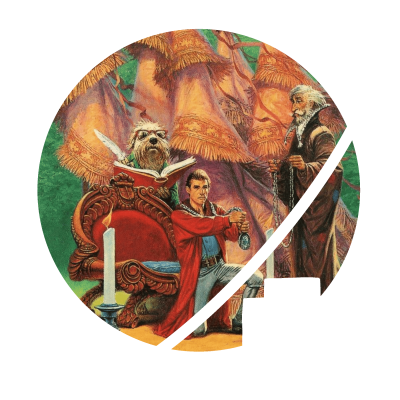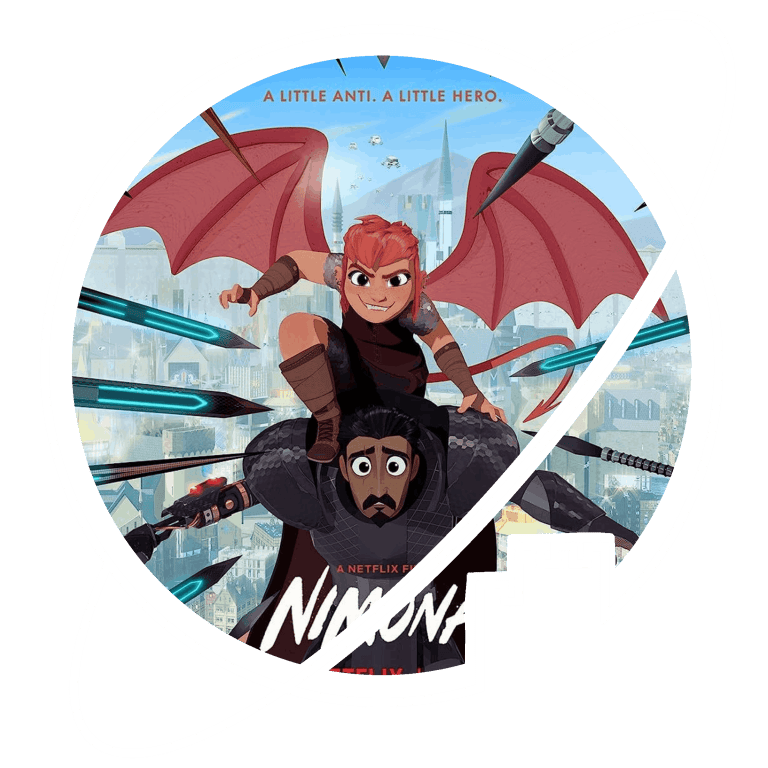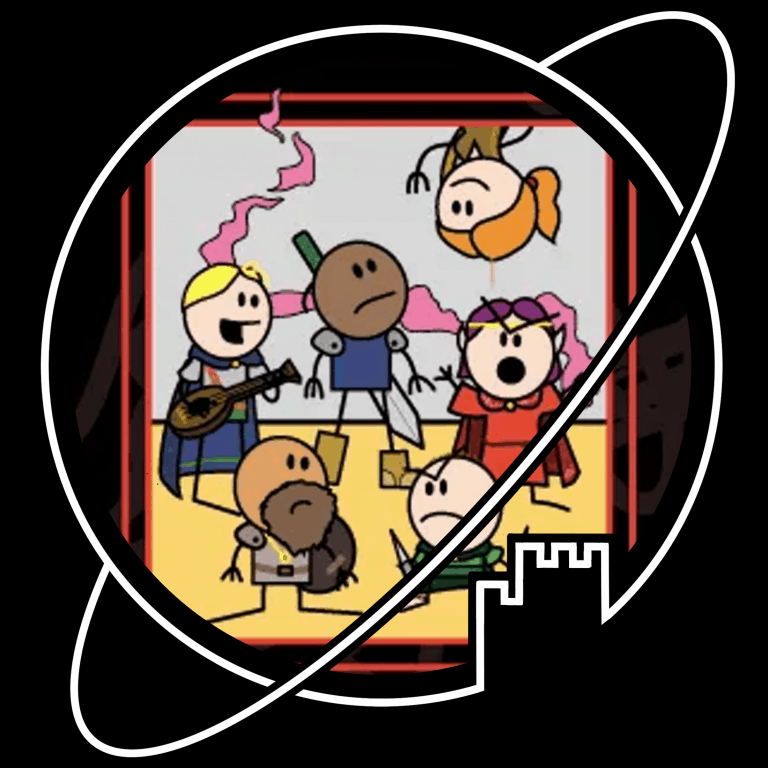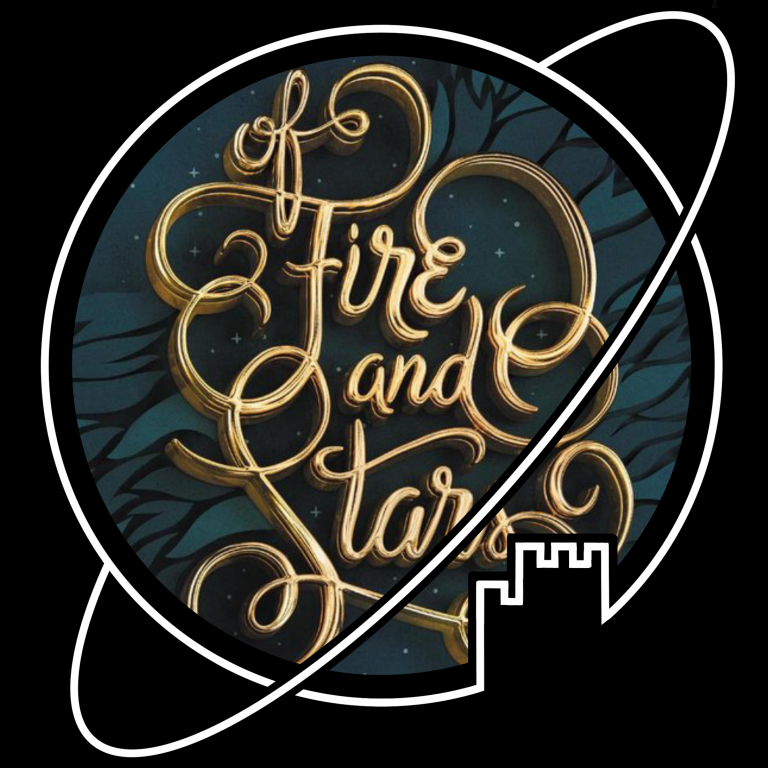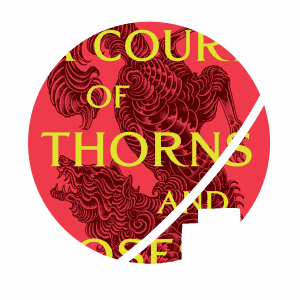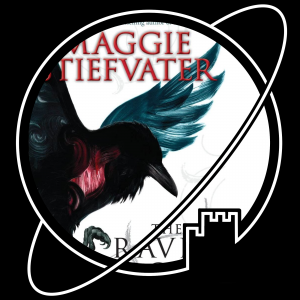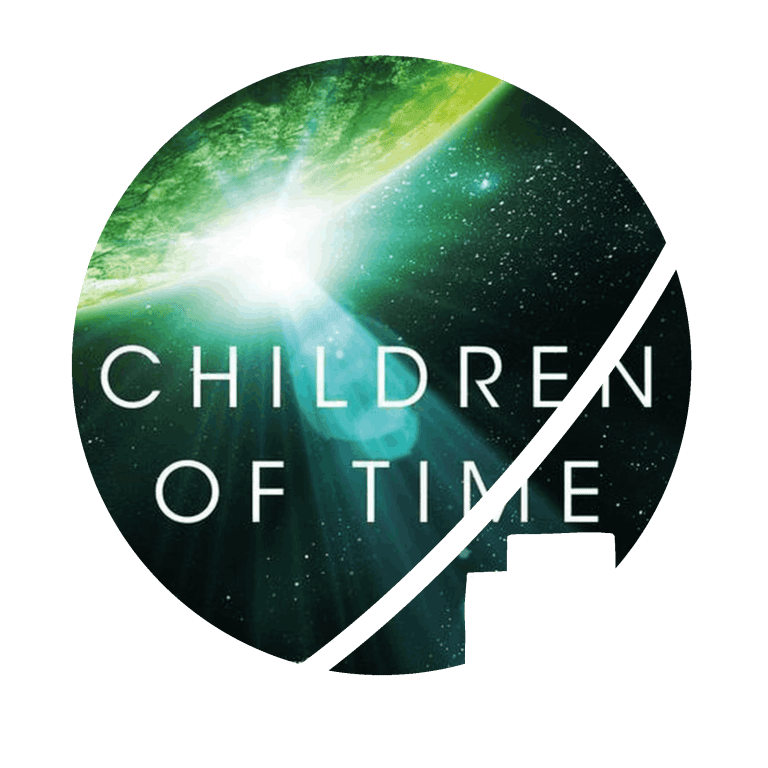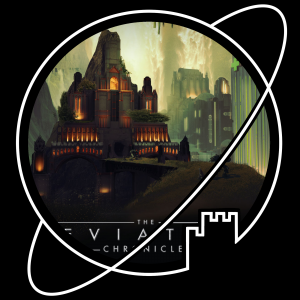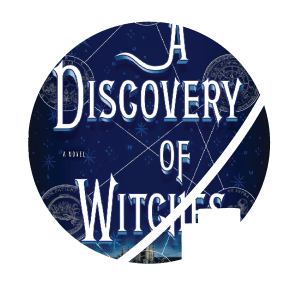Welcome to the Escape Velocity Collection!
We are an opinionated group of friends reviewing all sorts of fantasy and science fiction media. Don’t forget to get to know the curators and visit our curated Collection, where we discuss the stories that never cease to transport us to another world.
Will you escape with us?
LATEST POSTS:
- Book written by Terry Brooks
- Published 12 March 1986
- First book in the Magic Kingdom of Landover series

The first book I ever read from Terry Brooks – some twenty years ago – was the first book in his Shannara series. I vividly remember I hated it and did not even come close to finishing it. It left me with the conviction that Terry Brooks – although not necessarily a bad writer – was seemingly not capable of originality. Still, somehow I chose to pick up Magic Kingdom for Sale: Sold! some time later. This book proved much more to my liking, and I read most of its sequels.
Recently, I reread Kingdom for Sale: Sold! because I craved something comfortable and was feeling… nostalgic, I guess. And, even though I’m a little more critical than when I was a pre-teen, I’ll confess I still very much liked the concept of this series. There is just something very charming about a cynical lawyer protagonist that winds up as a king in a fantasy kingdom with both whacky and sinister elements. I can’t say too much without spoiling things, but Terry Brooks manages to balance different tones quite well in this series, especially after establishing the specifics of his worldbuilding.
Is Kingdom for Sale: Sold! a masterpiece? No, I don’t think so. At times it has a tendency to repeat itself, negatively impacting its pacing. It also lacks the emotional depth I usually look for in my media. However, its characters are very fun and/or cool (a certain dragon and hag come to mind). It’s a book that after all those years still managed to make me chuckle, and that’s quite powerful in these trying times. Additionaly, I remember the sequels introducing some pretty neat plot twists and worldbuilding aspects, so I’ll probably pick them up when I come across them again. This probably means you should also give this book a chance when you come upon it. The Prism Cat knows The Magic Kingdom of Landover books deserve it more than the Shannara series.
- Book written by Laura R. Samotin
- Published 7 May 2024
- Standalone (so far)
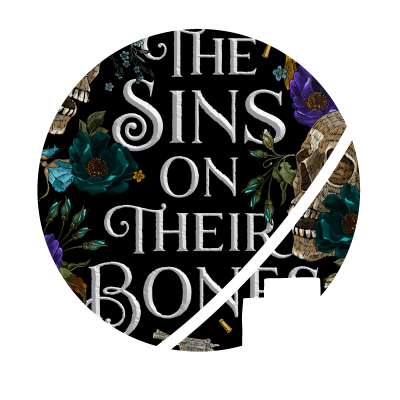
Full disclosure: we received a free advance reading copy for The Sins on Their Bones.

I had a hard time assigning a star rating to this book. Overall, I think three stars is suitable.
At the start, I really enjoyed The Sins on Their Bones. Samotin does an excellent job of setting the scene. Despite the story starting somewhat in the middle, or even after a lot of the events in the story, you get a good sense of the characters, the world and the plot.
However, there were a couple of things that made it hard for me to fully enjoy the book.
My first issue is the amount of sex scenes. I know “spice” is hugely popular among certain readers these days, and in and of itself, sex can have a place in a story. However, there are so many sex scenes in this book, to the point that they take up valuable space where we could have had some story instead. Eventually even one of the characters remarks that two people are busy banging when they REALLY should be on their way to move the story forward. It’s not until almost halfway through the book that they stop boning and get to the point.
My second issue is that while Samotin does a pretty good job starting the story in media res, we don’t really get enough throwbacks to the events that happen before the book starts to really experience them. Mostly the events just get mentioned, and they sound pretty cool! As the end of the book has some set-up for a sequel, I am left wondering why The Sins on Their Bones itself isn’t the sequel to another book. This would have given us more time to see characters fall in love, instead of just being told that they’ve had feelings for a long time. There’s plenty of interesting material and story for a first novel, so I didn’t quite understand the choice to begin the story where it does until I read the acknowledgements. The author does explain her reasoning here, but perhaps as an editor, I would have recommended a different approach to the story.
Partly because of these factors, I feel the pacing in The Sins on Their Bones is off. The beginning drags on for too long, and the ending is quite rushed.
In her Author’s note, Samotin expresses that one of her main goals with the book was to convince her audience of how interesting a story about Jewish folklore and myths can be. In this, I would say she has definitely succeeded. I was also happy to see a fantasy world in which queer characters are portrayed as completely normal.

The Sins on Their Bones has a pretty good marketing blurb, but unfortunately, I found it more frustrating than enjoyable to read.
The premise and setting bring all the ingredients for an exciting and original tale. Late 19th-century Eastern Europe is not exactly a well-explored backdrop for fantasy stories, and I actually liked that the story starts after our protagonist already lost the war and has had to retreat into exile. I feel like many authors would have felt the need to write the story during the war first; but the necessary details are conveyed through flashbacks and memories; it worked surprisingly well and is a relatively novel take. Great ideas to start the book with!
Unfortunately, that’s about as far as my positive impressions go. My lists of complaints is a lot longer. If I had to sum it up in a single sentence, it is that most elements of the novel are underdeveloped, and the parts that Samotin does spend a lot of effort on, made me want to put the book away rather than read it.
Let’s get into a bit more detail.
First, I think the plot is bad. No point sugar coating it. I recognise it was never going to be the book’s selling point, so I get that it wasn’t the author’s focus. But I found myself rolling my eyes pretty frequently.
The Sins on Their Bones feels like it is written entirely on the fly, with no effort spent to plant the seeds for problems or solutions before they become apparent. This is especially noticeable in the placement of flashback scenes or descriptions of the past, which give characters a motivation or required information to do a thing, right before the plot requires them to do that exact thing. A problem comes up, Samotin describes that the characters know how to solve it, and then the characters solve it, right before the next problem comes up, etc.
Emblematic is that several times when the characters run into a problem, the next scene features them going to the local library(/villain’s study) to look for a solution. Invariably, they will find a book which contains the key, with absolutely zero conflict involved. What is worse, the solution found in the book generally appears ludicrous to the reader, but the characters either do not mind or find “it is the only way”.
That latter trope is one that Samotin uses pretty heavy-handedly throughout The Sins on Their Bones. Characters will make some absolutely bewildering decisions without considering any logical alternatives , just so the plot continues to roll forward.
So you’re not reading for the plot. How about the prose? That, too, felt a bit under-edited. It might be a style preference, but the relatively long sentences and unbroken paragraphs of emotional outpourings made me read through some pages top left to bottom right without feeling the need to slow down anywhere.
Emotional outpourings you say? Is this just a character-driven novel and am I showing my biases? Well, yes and yes – but this book does not have strong characters. I guess we should say it has three main characters – Dimitri, Vasily, and Alexey – but out of those, only Vasily has any depth; both Dimitri and Alexey are caricatures. The other characters – Ladushka, Annika and Mischa – could literally have been deleted from the book entirely without changing a single emotional beat or plot element. Their single-minded (and entirely unexplained and unjustified – here, that prequel would have been welcome!) love for Dimitri means they’re flat as a pancake as characters. I guess Ivan deserves a mention, as perhaps the only character that I felt for during the entire book – but that is probably because he felt like a child and was literally repeatedly raped.
And there we have it – what The Sins on Their Bones really does.
The Sins on Their Bones is a big mess of dark emotions dripping from the pages: guilt, shame, fear of loss, desperation, anger, lust, depression – in such quantities as to feel gratuitous (and frankly, quite repetitive).
That last description – gratuitous and frankly repetitive – could also be applied to the sex scenes in this book. It feels as if every character interaction must contain at least a reference to sex or sexual desire. Multiple-page sex scenes – in the large majority of cases, portraying very (and I mean, very) unhealthy sexual relationships – are this book’s bread and butter.
As a result, The Sins on Their Bones left me with the icky feeling that Samotin was constantly trying to shock me with cheap, ever-increasing emotional horrors at the expense of any real story or character development. As if she felt that just flooding the characters with absolutely terrible ordeals would stun me to the point where I would no longer notice the lack of a meaningful plot. The result is the opposite: because there is absolutely no subtlety to any of the misery, I found myself more detached from the characters rather than pulled in.
I have a long list of minor gripes (see below), but the bottom line of this review is that while the idea of The Sins on Their Bones and the marketing blurb set the stage for a wonderful novel, the execution is severely mediocre as a result of a focus on traumatising the reader rather than telling a story. I am going to have to admit that I would not have finished this book if I had not received an advance reading copy in exchange for a review – so here we are.
If you stuck around this long, you might also be interested in some of those little things that shouldn’t really matter, but bothered me nonetheless and added to my frustration with The Sins on Their Bones. I shouldn’t be doing this, I am being exceedingly petty, the book does not deserve this kind of roast, but sometimes writhing things down works therapeutically.
Some of these might contain minor spoilers and most of these contain strong language to properly convey my frustration.
- It’s the late 19th century, why are your soldiers ‘laying supply lines’ for months – where are your trains? Those big things on tracks for moving stuff and soldiers, you know? Choo-choo?
- If your soldiers are ‘laying supply lines’ for months on end – they’re eating the fucking supplies, that’s what supply lines are for! I get that this (unintentionally?) ended up being solved by the plot, but supposedly brilliant Annika or Ladushka should have known something was up from page 1!
- It’s the 19th fucking century, why are you using parchment for taking notes – you are like 400 years out of date!
- That fucking library was not only a terrible plot device, but also the most jarring mood-breaker I’ve come across in years – I would have binned the book right then and there if I had not been reading for this review (or on my phone…). The only offender that was worse was the part where they literally solved a problem… by following a goat until it stopped and there happened to be a demon there that could just tell them what they needed to know. I just have to believe Samotin snuck that chapter past the editor unseen…
- Why is Dimitri’s “court” literally four… teenagers? Twentysomethings? Where are all the other people? Where are his political supporters, his guards, his servants? Why did Samotin miss this opportunity to let any of them apart from Vasily do literally anything except go to that fucking library?
- Why do they keep acting like Dimitri could have shot Alexey at 200 paces with a pistol? Why do we make a point out of it even though we apparently understand the man is immortal? The emotional weight of the moment just crumbles when you know it wouldn’t have done anything even if he could have hit at that distance…
- You can’t tell me anyone can draw a ‘perfect likeness’ of particular person’s face on top of the existing portrait on a playing card.
- Etc.
Tagged:
See also:
- Novel written by Rebecca Yarros
- Published 5 April 2023
- Part one of The Empyrean series
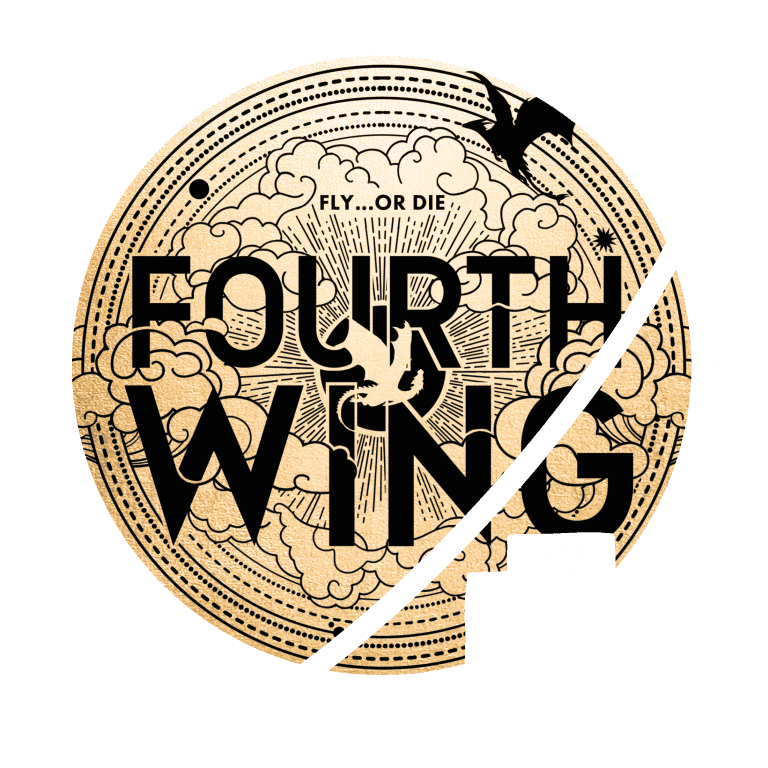

I spent a couple of days in Glasgow a few weeks ago. During that trip, I spent a significant time at Waterstones, and Fourth Wing was being promoted everywhere. I couldn’t escape it. Usually, a popular book has something going for it. Unfortunately, I was already listening to the audiobook at the time and already knew that this book is bad. I’m not sure why they were marketing it so much when they could have spent that space marketing literally anything else.
Fourth Wing takes place in the country of Navarre, which is at war with another country. I don’t remember the name and it’s not important enough to be in any of the plot summaries I’ve found on Google. This all to say that the war isn’t really relevant in this story about Dragon Riders at a War College.
“Basgiath War College” is where Violet Sorrengail is sent to learn to become a Rider. If she survives, that is. Violet is the weak, weak daughter of famous General Lilith Sorrengail, and she truly does not care if Violet lives or dies. Lilith, I feel ya.
The first challenge she faces is crossing a super dangerous bridge, the “parapet”. Most people don’t even make it to school, they just fall off the bridge.
Because Violet is such a weak loser, many of her fellow students want to kill her. People wanting to kill Violet for no good reason is one of the main themes in this book.
Someone who doesn’t want to kill Violet is major hottie Xaden Riorson, whose dad is known as “The Great Betrayer” for leading a rebellion against the government. Of course, Violet is convinced he wants to do her harm, but secretly he’s super into her. Half of the book is just Violet being horny for Xaden yet they have NO chemistry and NO realistic emotional buildup to their “relationship”. Spoiler: they eventually hook up. Who saw that coming?
Look, Yarros clearly wanted to write a book with the same kind of grim setting as The Hunger Games. A world in which young people die because the government doesn’t value their lives! What she, unfortunately, didn’t think about is the fact that you need to do good world-building for this to make sense in a story. And unfortunately, Fourth Wing does NOT have good world-building. There is no political commentary that Yarros is trying to make in this novel, or at least none that she’s trying to make properly.
At Basgiath War College, you either graduate or you die. And lots of people die during Violet’s first year at dragon rider school. Why wouldn’t the government care even a little bit about hundreds of potential soldiers dying? Probably because Yarros just needs Dragon School to be scary and dangerous for the plot. As mentioned before, the war is but a backdrop for Violet and Xaden getting it on.
A lot happens “for the plot” in this book. There are all these silly rules and inconsistencies that make zero sense until Yarros explains why they’re there: to move the plot forward. Killing your classmates is obviously fine, UNLESS they’re asleep, in which case your punishment is death. Sleeping with a superior officer is also clearly not allowed (because tension), but I suppose you would be allowed to kill them and that would be fine?? There’s a scene where Violet “bends” the rules by bringing a knife to a challenge where she’s not allowed to bring any weapons. However, because she brought this knife with her across the parapet, she argues that it’s fine, because “any object brought with a rider across the parapet is part of the rider”. All the rules feel made up to fit whatever scene Yarros wants to write.
Meanwhile, all the bad guys are comically evil. You’re gonna be a dragon rider, why are you so obsessed with killing the boring protagonist?
I can’t end this review without mentioning the elephant in the room. Fourth Wing features some “spice” as the kids call it. On the whole, there isn’t a lot of sex in this book, but the scenes that were there were awful.
The first sex scene was the worst 20 minutes of my life. I was half glad that I was listening to the audiobook because I could yell things like “noooo” and “make it stop” and the narrator would still just drag me through it. On the other hand, I might have been able to skim the scene in a paper book. This scene was TWENTY minutes of straight up smut. I hated it. It served no purpose in the book.
Fourth Wing doesn’t make me want to be a dragon rider, which I think is one of its main failings. One of the most positive things I can say about it is that at times, it is fine. However, I don’t think I’ll ever again pick up a book that gets marketed as “romantasy”.
Tagged:
See also:
- Movie directed by Yorgos Lanthimos
- Starring Emma Stone, Mark Ruffalo, Willem Dafoe, Ramy Youssef, Christopher Abbott, and Jerrod Carmichael
- Released on December 8, 2023
- Runtime: 142 minutes


I have watched this movie in the cinema three weeks ago, and I am still not entirely sure what I think of it. Visually it is certainly stunning, and I did enjoy the quirky style of cinematrography. However, when it comes to comparing it with the book I am a bit hesitant.
One of the strong points of the book is that it offers you different versions of the story, and makes you question which version is the truth. This element is completely taken out of the movie, and it therefore misses this very interesting dimension. Due to the eccentric style of the movie the charaters became even more of a caracature than they already were in the book, and therefore less realistic. While still interesting to look at, this made it even harder to truly identify with them as a viewer.
Female sexuality is an integral part of the book and so the sex scenes could not have been left out, but watching them on a big screen definitely felt more uncomfortable then only reading about them. This in itself is not necessarily a bad thing, not all movies have to be comfortable. And yet I am finding myself doubting what message the movie was actually trying to bring across, and whether it succeeded in this. For example, although the movie did show one whole naked penis (contrary to the vast majority of other movies), there was still significantly more female nude on the screen. In my opinion, this took something away from the feminist message that (I assume) it was trying to portray.
All in all it left me with quite some questions, but I vastly prefer a movie that makes you think over a movie that does nothing new. So if you are in for a bit of an experiment, go see it! But if you do, don’t make the same mistake that I did: unless you are from a very open minded family, this might not be the best movie to go see together with your parents.
Tagged:
See also:
- Book written by Adrian Tchaikovsky
- Published 2 November 2017
- Followed by Bear Head


Listened to the audiobook with William Hope, Laurence Bouvard and Nathan Osgood – a nice mix for the different perspectives.
My rating on Dogs of War is probably skewed by a personal pet peeve, which is that – for whatever reason – I’ve never been able to suspend my disbelief on anthropomorphic human-animal hybrid bio-engineered super soldiers. I have never been able to believe that we could make that work, or that the resulting creatures would actually be better at warfare than either humans or animals.
Bio-engineered human-dog hybrids have always felt like children’s cartoon-level villainy to me, and that makes it tough for me to take a book like Dogs of War seriously. I am going to have to admit that I put this book on without reading the blurb, and I probably would not have picked it up had I known.
Dogs of War was a relatively short read for the speculative genre (just under 10 hours of listening at 1x speed), so I decided to push on through, just to see what I would make of it. Had it been one of these 25 hour epics, I probably would not have finished.
Tchaikovsky’s core themes in Dogs of War are acceptance and tolerance and fear of the unknown. In this case, it is about the acceptance of hybrid bioforms in human society. The message is clear: these animal-human hybrids deserve our compassion and acceptance. The implication is that people who fail to see the bioforms as human, are bigoted.
One difficult aspect of Dogs of War is that the bioforms, the group it wants you to root for, are by their nature very alien. It takes preaching acceptance and inclusion to an extreme. That is an interesting premise, I’ll admit, but I didn’t feel like Tchaikovsky made it work fully.
Dogs of War’s main villain treats his bioforms like objects – tools or obstacles. This is cast in contrast with other human characters, who see the bioforms as individuals deserving of individual dignity. That would appear to set up the central conflict, but the problem is that the main villain also treats humans as nothing other than tools and obstacles. He lacks any compassion towards anyone at all. His treatment of bioforms and humans hardly differs. The main villain therefore doesn’t really do much for the central theme.
Which leaves the question of the acceptance of bioforms in human society unfortunately on the sidelines. There are a couple of scenes and narratives describing humans’ difficulty in interacting with the hybrid bioforms, but these are few and far between, even though these should maybe have been central to the book.
The main reason, I feel, humans fail to accept bioforms is not that the bioforms committed atrocities in war – humans, too, commit atrocities in war. The main reason is that bioforms are alien to us, and scary. And that aspect, while present, is left underdeveloped in the book. I can’t go into the conclusion without spoilers, but I ended up feeling the resolution was just slightly unearned.
So, what did I think? The bottom line is that it is a fine novel, but that it failed to grip me.
On a side note, I have to mention that Tchaikovsky includes a couple of scenes at the International Criminal Court in Dogs of War, and I was pleasantly surprised to find that he had figured out the concept of command responsibility, which played a central role in a couple of chapters. He might miss the mark on a number of other aspects of the ICC, but getting that one important detail right earns him high praise from me!
- Novel written by Alasdair gray
- Published 1992
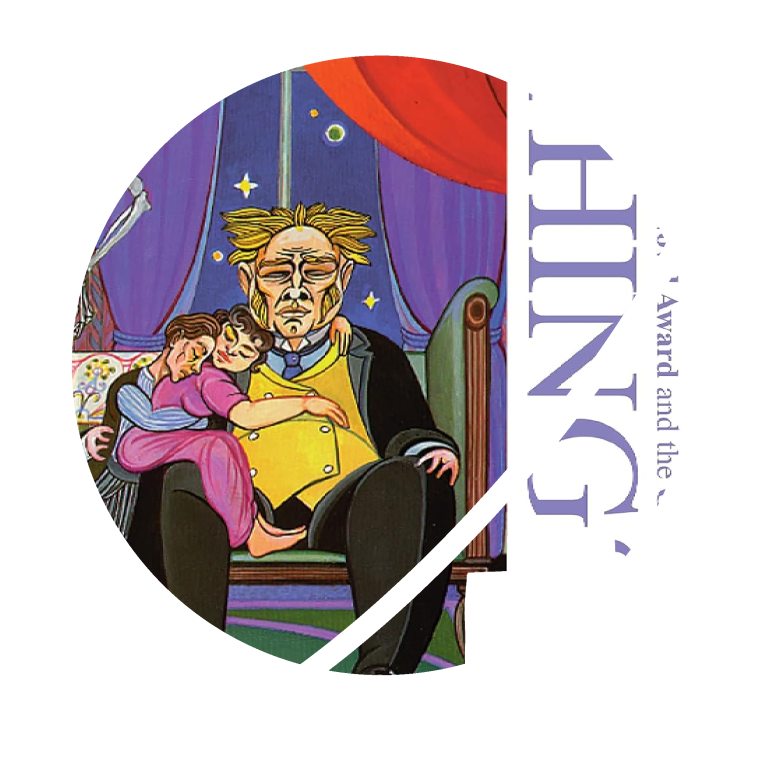

Poor Things is such an ambitious book that I feel like I need to reread it at least once before I will be able to fully comprehend it. But even in the first read-through I already very much appreciated how skillfully crafted this story is.
The book is written in the style of a Victorian novel, with an intricate narrative structure. The various stories within stories have the purpose of making you doubt the reliability of the different narrators. Therefore, from the very beginning you are forced to question everything that you are reading, and to decide for yourself which version of events you believe.
The many references to Frankenstein, Jane Eyre and other famous texts serve to support the books themes of female agency, freedom and sexuality. But here too the book refuses to provide easy answers, forcing the reader to do a lot of the thinking for themselves and to make up their own mind.
Apart from the structure of the story, the book also plays around with language itself. My favourite example of this is the evolution of Bella’s speech, as this is where Alasdair Gray really gives free rain to his ability to engage and experiment with language.
The story is in many ways alligorical, which results in some of the characters being somewhat of a caricature. While this fits to book and it’s purpose, it does mean that the readers are kept at more of a distance to the characters, not really being able to fully identify with them. Nevertheless, I found enough to puzzle over in this book that this did not keep me from enjoying it.
The book is very different in tone compared to its 2023 movie adaptation, so if you saw the movie and did not enjoy it, that does not necessarily mean that you will not enjoy the book. I would definitely recommend it to any lovers of either Victorian(-style) or feminist literature.

Review: Magic Kingdom for Sale: Sold! – Terry Brooks
Ben Holiday, a depressed lawyer whom has lost his joy in life after losing his wife and unborn child in a car accident, gets the unique offer to buy a magical kingdom called Landover. Though Ben thinks this offer is too good to be true, he knows one thing for sure: he’s got nothing left to lose. He might as well seek out what this so-called kingdom entails, no?
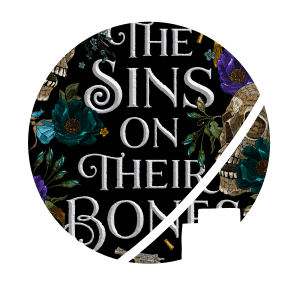
Review: The Sins on Their Bones – Laura R. Samotin
Dimitri used to be the Tzar of Novo-Svitsevo – until he was usurped by his husband Alexey, who turned out not to just be abusive, but also a dark sorcerer. Having lost his husband as well as a civil war, Dimitri has fallen into depression and is now in exile, holed up in a foreign city with a handful of his most loyal followers, trying to think of a way to kill an immortal man and put Dimitri back on the throne of his empire. Perhaps the most important of those followers is Vasily, Dimitri’s former spymaster, who must find a way to infiltrate Alexey’s court – while also navigating complex feeling towards Dimitri. Alexey, meanwhile, is trying to forget Dimitri – and to focus on his plans for world domination.
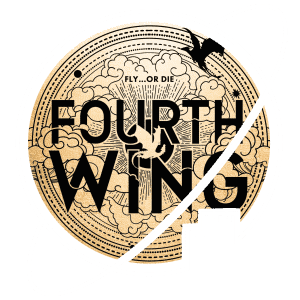
Review: Fourth Wing – Rebecca Yarros
Violet Sorrengail has spent her entire life training to be a scribe like her father, but when conscription day comes around, her mother forces her to join the Rider’s Quadrant. Because she’s so small and weak, Violet has to use all her wit to survive and one day become a dragon rider like her mother and sister. Meanwhile, she finds herself impossibly attracted to the son of her mother’s worst enemy.

Review: Poor Things – Yorgos Lanthimos
In this thought-provoking twist on Frankenstein, the drowned body of a young woman is brought back to life with the brain of her unborn infant. The result of this scientific experiment is Bella Baxter (portrayed by Emma Stone). Unbound by the societal norms of her era, Bella becomes resolute in her mission to advocate for equality and freedom.

Review: Dogs of War – Adrian Tchaikovsky
Rex is a dog-human hybrid, a bioengineered supersoldier known as a bioform, serving alongside a number of other human-animal hybrids in a private security company engaged in the supression of an uprising in Mexico. When he loses connection to his master on a mission, he and his team are faced with difficult questions on their role in the war and the world beyond. The world, meantime, is faced with exactly the same questions.
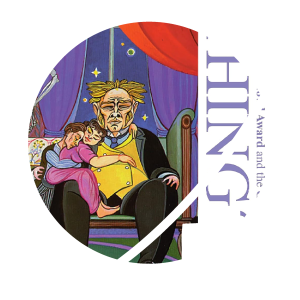
Review: Poor Things – Alasdair Grey
In Alasdair Gray’s thought-provoking twist on Frankenstein, the drowned body of a young woman is brought back to life with the brain of her unborn infant. Through humor and satire, Gray pokes fun at the classic Victorian novel while offering a profound commentary on politics and gender dynamics.









